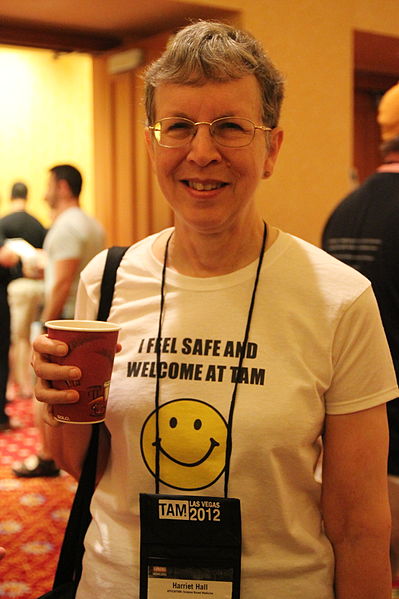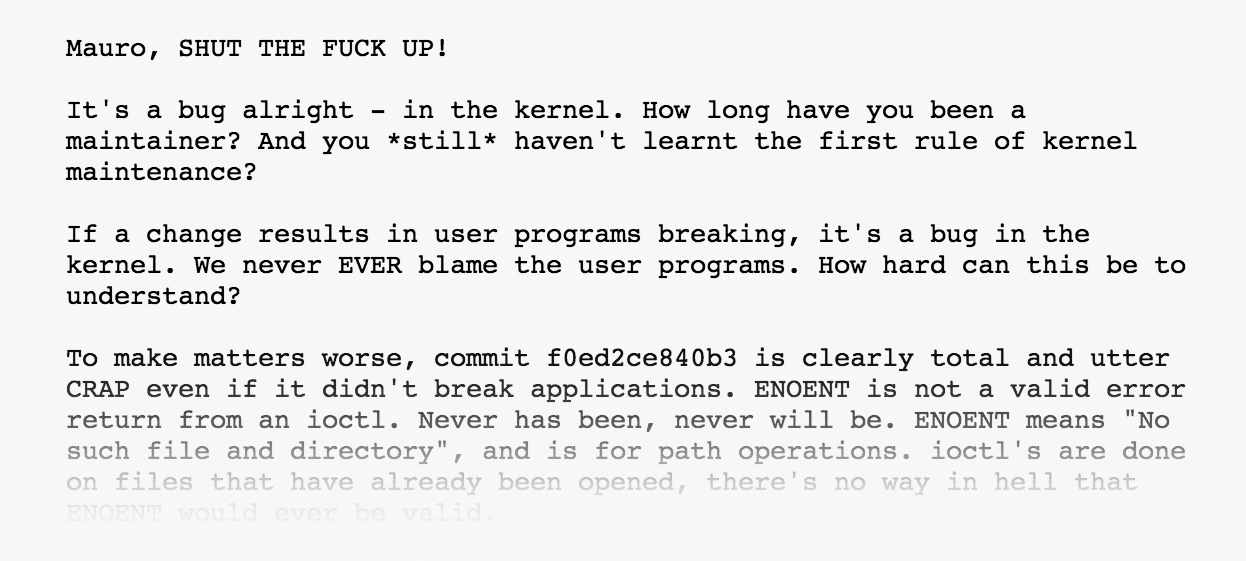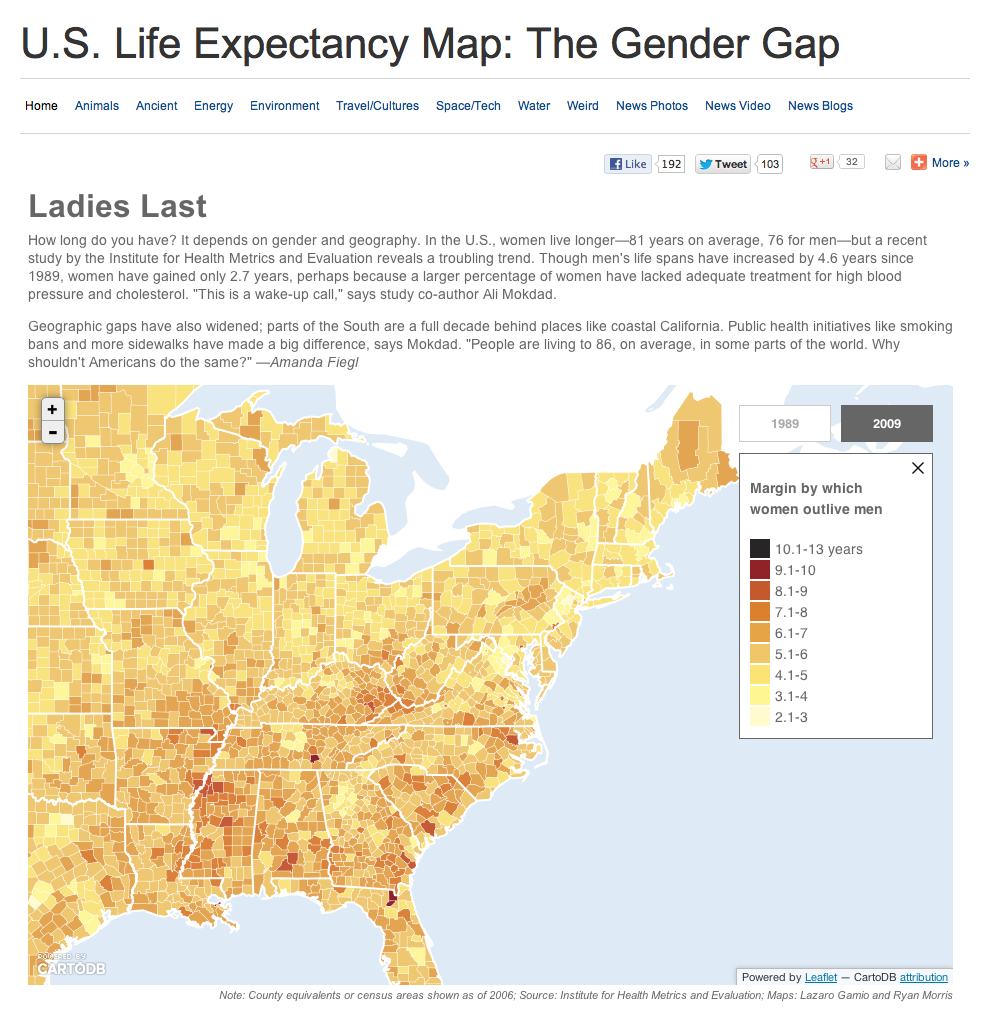“Kernbom VS in 1961 bijna ontploft” kopte de NOS onlangs. Het bijbehorende bericht verhaalde hoe in de jaren zestig een bommenwerper per ongeluk een waterstofbom dropte boven North-Carolina. De bom bevatte vier veiligheidsmechanismen die ervoor moesten zorgen dat hij in dit soort gevallen niet zou ontploffen. Maar eentje daarvan deed het; de andere drie waren defect. De bom is dankzij dat ene functionerende veiligheidsmechanisme niet afgegaan, maar het was, zoals ze aan de andere kant van de Atlantische Oceaan zeggen, a close call. A very close call.
Dit incident en vele andere bijna-ongelukken worden uit de doeken gedaan in het boek Command and Control: Nuclear Weapons, the Damascus Accident, and the Illusion of Safety van Eric Schlosser. Schlosser, die in zijn boek het nog steeds aanwezige gevaar van kernwapens onder de aandacht wil brengen, beschrijft eveneens hoe in 1983 een vals alarm bij de Sovjets bijna een nucleaire oorlog heeft veroorzaakt. Het satelliet-systeem van de Sovjets – bedoeld om een raketaanval van de Amerikanen in een zo vroeg mogelijk stadium waar te nemen – werkte niet goed en gaf daardoor ten onrechte aan dat er vijf kernraketten richting de Sovjet-Unie vlogen. Stanislav Yevgrafovich Petrov, een luitenant-kolonel van de luchtverdediging, vermoedde dat er sprake was van een storing en besloot daarom om zijn superieuren niet meteen in te lichten. Hij wilde eerst bevestiging van de grondradar voordat hij alarm zou slaan. Na een paar zenuwslopende minuten bleek dat Petrov inderdaad gelijk had: de grondradar gaf aan dat het Sovjet-luchtruim alles behalve Amerikaanse kernraketten bevatte. (Het detectie-systeem van de Amerikanen was evenmin perfect; ook bij hen is er in de jaren tachtig een aantal keer een vals alarm afgegaan.)
Wat zou er gebeurd zijn als Petrov niet gewacht had? Zouden de Sovjets dan besloten hebben om een grootschalige vergeldingsaanval te lanceren? Het is niet ondenkbaar. Ik vind het een fascinerende wat-als-gebeurtenis, vooral omdat ik opgegroeid ben in de jaren tachtig. In tegenstelling tot de jaren zeventig (de jaren van detente, waarbij de koude oorlog op een relatief laag pitje stond), was er in de jaren tachtig door de slechte relatie tussen Amerika en de Sovjet-Unie een serieuze dreiging van een kernoorlog. (Deze dreiging leidde o.a. in tot de productie van Threads. Deze film uit 1984 is de meest naargeestige film die ik ooit heb gezien. Threads laat zien wat er zou kunnen gebeuren met de industriestad Sheffield – op zich al een heel deprimerend onderwerp – als er een kernoorlog uitbreekt.) Het is in retrospectief een verontrustende gedachte dat tijdens mijn jeugd er een enorm nucleair zwaard van Damocles boven mijn hoofd hing. Als het allemaal net even iets anders had gelopen, had ik als kind niet met Lego gespeeld, maar met radioactief gruis. En in plaats van waterpokken had ik geleden aan stralingsziekte – tenminste, als ik tegen die tijd niet was opgegeten door een hongerige buurtgenoot.
Enfin, ik moet hier ook aan denken omdat ik laatst Ray Monks prachtige biografie over J. Robert Oppenheimer heb gelezen: Robert Oppenheimer: A Life Inside the Center. Oppenheimer wordt beschouwd als de geestelijk vader van de atoombom (een wat merkwaardige uitdrukking: kun je namelijk ook een niet-geestelijke vader zijn van een uitvinding?)
Oppenheimer werd in 1904 geboren in New York. In materieel opzicht ontbrak het hem aan niets gedurende de eerste jaren van zijn leven – zijn vader was een welgestelde ondernemer van Joodse komaf – maar door zijn beschermde opvoeding was hij een ietwat eenzaam kind. Op zijn achttiende ging hij chemie studeren aan de universiteit van Harvard. Daarna vertrok hij naar Europa – indertijd het wetenschappelijke centrum van de wereld – om in Cambridge natuurkundig onderzoek te doen.
Oppenheimer komt in Monks biografie naar voren als een melancholieke en intens onzekere man. Eigenschappen die tijdens zijn verblijf in Cambridge – waar hij weinig tot stand wist te brengen – omsloegen naar een soort van psychose. Tijdens deze episode heeft hij o.a. geprobeerd zijn begeleider te vergiftigen (wat niet gelukt is trouwens). Een korte vakantie en het lezen van Proust leidden, naar eigen zeggen, uiteindelijk tot zijn herstel. Monk suggereert dat hij tijdens deze vakantie ontdekte dat de afschuw die hij voor zichzelf voelde, niet per se betekende dat anderen die afschuw ook deelden. Zoals hij zelf later in zijn leven zei:
It turned out to be impossible (…) for me to live with anybody else, without understanding that what I saw was only one part of the truth (…) and in an attempt to break out and be a reasonable man, I had to realize that my own worries about what I did were valid and were important, but that they were not the whole story, that there must be a complementary way of looking at them, because other people did not see them as I did. And I needed what they saw, needed them.
Oppenheimer ging vervolgens naar Göttingen om onderzoek te doen onder Max Born. Daar had hij meer succes dan in Cambridge. Samen met Born ontwikkelde hij de Born–Oppenheimerbenadering (nee, vraag me niet om deze uit te leggen). In Göttingen ontpopte Oppenheimer zich als een ambitieuze, pedante en zelfverzekerde wetenschapper. Hij was zo zelfverzekerd dat de eminente Born “een beetje bang” werd voor de jonge Oppenheimer. (Een zelfverzekerdheid – door sommigen geïnterpreteerd als arrogantie – waarmee hij wellicht zijn onzekerheid wilde compenseren.)
Eind jaren twintig keerde hij terug naar Amerika, waar hij als professor werd aangesteld bij de universiteit van Berkeley. Op dat moment vonden bijna alle opwindende ontdekkingen in de theoretische natuurkunde in Europa plaats, en Oppenheimer wilde Berkeley gebruiken als een broedplaats voor Amerikaans talent. Dat lukte wonderwel: Oppenheimer en zijn studenten – die hem liefkozend “Oppie” noemden – deden in de jaren dertig een aantal briljante ontdekkingen. Zo voorspelde hij in 1939 het bestaan van zwarte gaten in een artikel dat hij samen schreef met Hartland Snyder.
Het was briljant werk, maar niet geniaal. Tenminste, als we geniaal definiëren als Nobelprijs-winnend – een eer die Oppenheimer nooit ten deel gevallen is. Volgens Monk was hij daarvoor teveel een generalist. Hij was geïnteresseerd in allerlei uiteenlopende onderwerpen op het gebied van de astrofysica, kwantummechanica en kwantumelektrodynamica, maar beet zich nooit echt ergens voor lange tijd in vast. Daarnaast hield hij zich ook bezig met talen (Oppenheimer was een polyglot die onder andere Sanskriet en Nederlands kon lezen; die laatste taal heeft hij opgepikt toen hij een paar maanden in Utrecht en Leiden verbleef), kunst en poëzie. Niet al zijn collega’s waren daar van gecharmeerd. Zoals de natuurkundige Paul Dirac ooit tegen hem zei:
I don’t see how you can work on physics and write poetry at the same time. In science, you want to say something nobody knew before, in words everyone can understand. In poetry, you are bound to say something that everybody knows already in words that nobody can understand.
In 1942 nam hij de wetenschappelijke leiding op zich van het Manhattan-project, de codenaam voor Amerika’s poging om een atoombom te ontwikkeling. Het was een gigantische onderneming; een tour-de-force waar zo’n 130.000 mensen bij betrokken waren. Een belangrijk deel van het werk vond plaats in een onderzoekscomplex dat speciaal voor het Manhattan-project uit de grond was gestampt bij het afgelegen dorpje Los Alamos in New Mexico. Los Alamos was de plek waar een indrukwekkende verzameling wetenschappers (Oppenheimer zelf, Edward Teller, Hans Bethe, Enrico Fermi, Richard Feynman en vele anderen) de eerste atoombommen ontwierpen en bouwden.
Oppenheimer was een charismatische en inspirerende leider. Dankzij zijn generalistische natuur kon hij meepraten en -denken over alle verschillende aspecten van de bom. Hij wist daardoor bijna moeiteloos het overzicht te bewaren en verloor zich niet in details. De inzet van Oppenheimer en zijn team zorgde ervoor dat er in amper drie jaar tijd twee verschillende atoombommen gebouwd konden worden: eentje met uranium (de Thin Man) en eentje met plutonium (de Fat Man). Bij de uraniumbom werden twee stukken uranium bij elkaar gebracht. Zo ontstond er een kritische massa: de hoeveelheid radioactief materiaal die nodig is om een kettingreactie tot stand te brengen. De wetenschappers waren er zo van overtuigd dat deze bom zou werken, dat hij nooit getest is (bovendien hadden ze niet genoeg uranium om een tweede bom te maken).
De plutoniumbom had een ander ontwerp. In deze bom ontstaat er een kritische massa door via een implosie de dichtheid van het plutonium te verhogen. Het relatief complexe ontwerp maakte een test noodzakelijk. Op 16 juli 1945 werd daarom een prototype – bijgenaamd de “gadget” – tot ontploffing gebracht in New Mexico. Deze zogenaamde Trinity-test liet voor de keer de verschrikkelijke kracht van een atoomwapen zien. Naderhand vertelde Oppenheimer dat hij tijdens de test aan het volgende vers uit de Bhagavad Gītā moest denken: “Now I am become death, the destroyer of worlds.” (Oppenheimers vrije vertaling van dit vers wordt nog vaak geciteerd. De trailer voor de 2014-versie van Godzilla – een monster dat ontstaan is door kernproeven – bevat bijvoorbeeld een geluidsfragment van Oppenheimer waarin hij deze anekdote vertelt.)
Kort daarna werd de Thin Man op Hiroshima geworpen (op 6 augustus) en de Fat Man op Nagasaki (op 9 augustus). Het aantal slachtoffers was enorm: dankzij de bommen overleden naar schatting 150.000 tot 250.000 mensen. De nachtmerrie-achtige destructie werd in 1946 treffend beschreven door de Amerikaanse journalist John Hersey:
When [Wilhelm Kleinsorge, een Duitse priester] had penetrated the bushes, he saw there were about twenty men, and they were all in exactly the same nightmarish state: their faces were wholly burned, their eyesockets were hollow, the fluid from their melted eyes had run down their cheeks. (They must have had their faces upturned when the bomb went off; perhaps they were anti-aircraft personnel.) Their mouths were mere swollen, pus-covered wounds, which they could not bear to stretch enough to admit the spout of the teapot.
Oppenheimer heeft nooit spijt gehad van zijn werk in Los Alamos. Dankzij de bom kon immers de oorlog met Japan tot een snel einde gebracht worden zonder het vergieten van nog meer Amerikaans bloed. Zoals Oppenheimer later schreef:
I was asked (…) whether now, knowing the results, I would again do what I did during the war: participate in a responsible way in the making of atomic weapons. To this I answered yes. When a voice in the audience angrily asked “Even after Hiroshima?” I repeated my yes.
De vernietiging van Hiroshima en Nagasaki was echter ook geen reden tot vreugde. Monk beschrijft bijvoorbeeld hoe Oppenheimer aan President Truman vertelde dat hij bloed aan zijn handen had. Truman, die als president de beslissing heeft moeten nemen om de atoombommen tegen Japan te gebruiken, vond Oppenheimer een “cry-baby scientist“. “I told him,” zo zei Truman later, “the blood was on my hands—to let me worry about that.”
Na de oorlog werd Oppenheimer adviseur van de United States Atomic Energy Commission, een organisatie die de ontwikkeling van kernwapens en -energie moest reguleren. Oppenheimer stelde voor het atoomonderzoek onder toezicht te stellen van een internationale organisatie die de ontwikkeling van nog meer kernwapens moest voorkomen. Later zou Oppenheimer zich ook verzetten tegen de ontwikkeling van de waterstofbom. Deze bom – een wapen dat nog veel krachtiger is dat de atoombommen die op Hiroshima en Nagasaki geworpen zijn – was het geesteskind van Edward Teller, een wetenschapper die geloofde dat een bom niet destructief genoeg kan zijn (zijn collega Isidor Rabi zei daarom over hem: “He is a danger to all that is important. I do really feel it would have been a better world without Teller.”) De waterstofbom is zo allesvernietigend, dat ze eigenlijk alleen maar gebruikt kan worden om steden in puin te leggen (een militair doel zoals een legerbasis kan immers ook onschadelijk gemaakt worden met een “gewone” atoombom – daar heb je niet per se een waterstofbom voor nodig).
De koude oorlog en de angst voor het communisme zorgen ervoor dat er weinig terecht kwam van deze idealistische plannen. Amerika wilde zijn atoomgeheimen niet onder toezicht stellen van een internationale organisatie. De Sovjet-Unie vond dat wel best en ontwikkelde ondertussen haar eigen atoombom (een relatief makkelijk karweitje, dankzij het spionagewerk van Klaus Fuchs). Amerika was bovendien doodsbang dat de Sovjet-Unie als eerste een waterstofbom zouden bouwen en zette daardoor alles op alles om de Sovjets daarin voor te zijn. Samengevat: De haviken wonnen het van de duiven en de wapenwedloop was een feit.
Oppenheimers weinig succesvolle pogingen om het Amerikaanse atoombeleid te beïnvloeden, liepen ten einde in 1953. In dat jaar werd tijdens een hoorzitting – geïnstigeerd door de pro-nucleaire haviken – zijn veiligheidsmachting ingetrokken. Tijdens de hoorzitting werd door zijn tegenstanders naar voren gebracht dat Oppenheimer in de jaren dertig communistische sympathieën had (waar), lid was van de Communistische Partij (iets wat nooit iemand heeft kunnen bewijzen), en dat het zeer verdacht was dat Oppenheimer tegen de waterstofbom was. Bovendien werd Oppenheimer nagedragen dat hij in een ver verleden gelogen had over een – mislukte – poging van de Communistische Partij om hem te rekruteren als informant. Het was een beschamend tafereel: Oppenheimer, de man die Amerika de atoombom bezorgd had, werd op een uiterst suggestieve manier afgeschilderd als een onbetrouwbaar sujet. De beschuldigingen waren voor Oppenheimer extra pijnlijk omdat hij, zoals Monk meerdere keren benadrukt in zijn boek, een bijzonder patriottistische man was. Albert Einstein vatte later de hoorzitting als volgt samen: “The trouble with Oppenheimer is that he loves a woman who doesn’t love him: the U.S. government.”
Na de hoorzitting richtte Oppenheimer, die inmiddels directeur was geworden van het Institute for Advance Studies in Princeton, zich op onderzoek, onderwijs en het geven van openbare lezingen. Later, toen de paranoia rond het Sovjet-gevaar wat afgenomen was, volgde ook een soort van eerherstel. Hij werd bijvoorbeeld in 1962 door President Kennedy uitgenodigd om in het Witte Huis een diner bij te wonen voor prominente Amerikaanse wetenschappers. (JFK grapte op die avond: “I think that this is the most extraordinary collection of talent, of human knowledge, that has ever been gathered together at the White House, with the possible exception of when Thomas Jefferson dined alone.”) In 1967 overleed Oppenheimer aan de gevolgen van keelkanker.
Oppenheimers levensverhaal laat zien dat het vergaren en toepassen van kennis enorme verantwoordelijkheden met zich mee kan brengen. In de negentiende eeuw werd wetenschap gezien als een middel om de wereld te verbeteren of – in het ergste geval – een onschuldige hobby. In de twintigste eeuw kwam langzaam het besef dat wetenschap ons niet automatisch naar Utopia leidt. Dankzij de wetenschap leven we langer dan ooit, maar tegelijkertijd heeft ze krachten losgemaakt die moeilijk beheersbaar zijn – kernwapens, chemische wapens, klimaatverandering, vervuiling, etcetera. Kennis is prachtig, maar dwingt ons – wetenschappers én niet-wetenschappers – ook om na te denken over complexe morele dilemma’s. Zoals Oppenheimer ooit in een lezing zei:
Long ago I said once that (…) the physicist had known sin, and I didn’t mean by that the deaths that were caused as a result of our work. I meant that we had known the sin of pride. We had turned to affect, in what proved to be a major way, the course of man’s history. We had the pride of thinking we knew what was good for man, and I do think it had left a mark on many of those who were responsibly engaged.















